Check in
Treasure silence
These words are from Maggie Reilly’s song “These Dreams”:
The sweetest song is silence that I’ve ever heard. Funny how your feet in dreams never touch the Earth.
Invite silence by turning off your electronics. When I do that, I mainly hear the hum of my refrigerator and the cawing of crows outside my windows. And now, as mating season begins, the incessant croaking of frogs in the pond below my apartment.
You may notice that silence has texture. Does it have a color?
If you live in a city, is it ever really silent?
Whatever your soundscape, weave the fabric of quiet. Wrap it around you. Allow yourself to drift. To dream.
Maybe this is meditation. Maybe it is sleep.
Silence is medicine
Do your thoughts clatter and clash when you sit in silence? Then this is the time to focus on your breath, to call forth the quiet scene that is the backdrop for meditation. For me, the scene is a winter lake, rimmed with sedges and cattails, bent and broken in the snow.
You could envision snow. Or rain. Clouds stitched together by birds. Silent stars.
I hope you can find a quiet image. A place to rest.
Rest in silence. It is medicine.
I wish healing for you.
Lonely
Somebody dropped a single gummy bear in a Trimet bus. The hook next to it is part of “securement,” the system that ties down wheelchairs or scooters.
I don’t use securement. Once I turn the power off, my wheelchair can’t move.
So the hook remains, unused, keeping company with an orange gummy bear.
First poem
Food talk
All we eat matters, Cookies and kale. Vegan or keto, Dairy or not. Hard-dry the raisins in merciless sunlight, Fill up our baskets with apples and dates. Ribbons of carrots, lemon zest curling, Food cut in circles, bite from the edge. We eat off plastic, cardboard for pizza. Cheese melted everywhere (no BST!). Back in the pasture, cows belching out methane, Our food, our planet, how can we connect? Eating is radical, diets unnatural— Eat like a caveman, no, like a nun. Give in to cravings, no, fast with intention. We’re always thinking about every bite. Why can’t we just eat? Real food, not too much. Most of it plants* And all of it good.
*These last words are courtesy of Michael Pollan, who wrote “Eat food. Not too much. Mostly plants.” Pollan wrote about genetically modified potatoes in The New York Times Magazine in 1998, and I’ve never knowingly eaten a conventional potato since I read that.
Photo essay
I have some images to share, like this sweet little pine branch. So perfect.
My camera found a splash of yellow next to a broken fence. Favorite themes: oblique lines, urban trash, surprising details. Things to notice.
More yellow in an image with doors. Interesting grids, oblique lines, color contrast. I like the gas meters, too: utilitarian yet strangely beautiful.
An arrangement of fall leaves, with texture as well as color. Spots and dots.
These images draw me in. They become a part of me. I’m sure you see things in them that I’ve missed. Every eye sees differently.
Norwegian salt
At a ferment event at Wellspent Market on Northeast Couch Street, I met Michal Christina Bietz. She is the co-founder of HAVSNØ, which makes salt from Norwegian seawater. She is from Portland, but was visiting from Norway. She lives there with her husband, who is Norwegian.
Working by hand and taking great care, the salt makers transform Norwegian seawater into simple flakes. The salt does taste of the sea. It’s kosher and costs $18 for 24 ounces.
I also met Liz Crain, a local food writer and blogger, who recently co-authored, with Aaron Adams, a book about fermentation: Fermenting: DIY Fermentation for Vegan Fare.
It’s easy for me to fall into conversation with strangers. Being a reporter means you have a reason to be asking nosy questions. And I’ve discovered that people like to talk about themselves.
A gift from above
The Universe had a special treat for me that day. As I made my way to the event, I took a photo of some crows feasting at a dumpster.
As I crossed the street, heading for the market, a crow flew over with something in its beak. It dropped it at my feet: a piece of bone. It may mean something, but what? Maybe the crow wanted to share.
Bus fumbling
Remember the slow shopper before you in the supermarket checkout line? The one counting out exact change or digging for a credit card. It used to be the slow check writer, but nobody writes checks for groceries anymore.
Now bus riders encounter their own slow blokes. A woman walked onto the 54 bus with her hand in her purse, digging for her Hop card. She couldn’t find it. Had to sit and dig and dig before finally—success!
Why, impatient me asks, couldn’t she spend her time while waiting for the bus digging for her card? Why, I ask again, doesn’t she keep it in a place where she can find it, like a pocket or a card holder?
Finally, impatient me asks, why am I even obsessing over 10 seconds of extra time before the driver can pull back into traffic?
Kinnikinick
From my days editing gardening books comes a funny word: kinnikinick. The plant list I copy-edited for Meredith, publisher of Better Homes and Gardens, lists kinnikinick as an alternative name for bearberry (Arctostaphylos uva-ursi).
Wikipedia notes that kinnikinick is also used in Minnesota and Wisconsin as a name for red-osier dogwood (Cornus sericea subsp. sericea).
Red-osier dogwood is common in the Pacific Northwest, too, including in the landscaping at Rose Schnitzer Manor. Kinnikinick doesn’t look like much in the summer. The leaves are thin and pale, and the flowers are minuscule. Descriptions on the Internet say the plant grows 6-12 feet tall, but the specimens here are only 3 or 4 feet high. I found some near the Beaverton Transit Center that looks much higher.
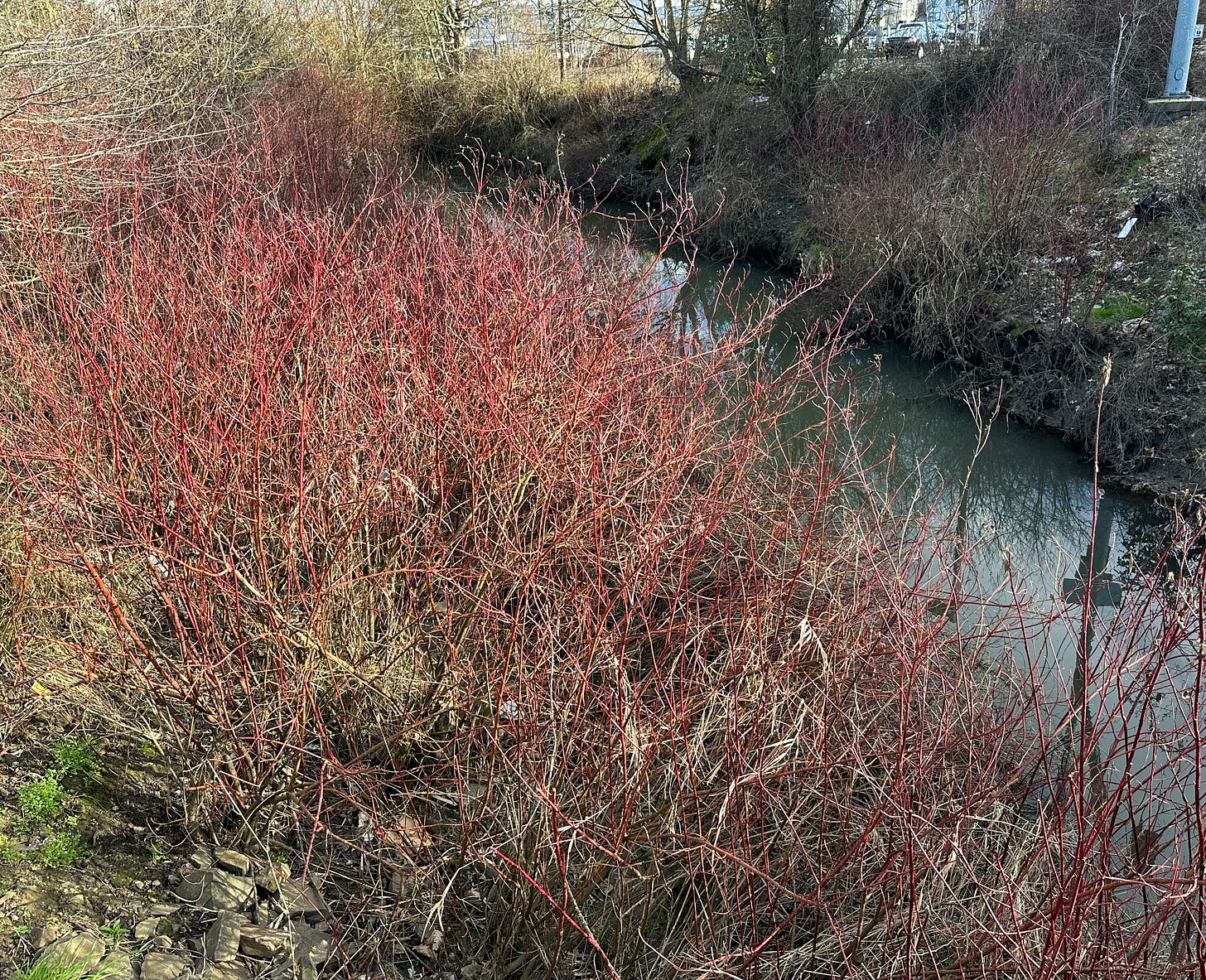
Winter
Summer
Throw in an extra “n,” Wikipedia notes, and “kinnikinnik” becomes something you smoke. It’s the leaves or inner bark of the dogwood plant mixed with berries or possibly tobacco.
Related words
“Kinnikinick” has overtones of other words.
Nick—a cut, a notch, slang for a jail, a verb meaning to steal
Knack—something that comes naturally
Nicker—the sound a horse makes, and a thief
Knickers—women’s underwear
Knickknack—another word for bric-a-brac
And
Knick knack paddy whack. As in the nursery tune about “This Old Man. . .”, the chorus of which goes:
With a knick, knack, paddy whack Give the dog a bone. This old man came rolling home.
Check out
Leap day
This year, 2024, is a leap year, with a leap day, February 29. I’ve known two people who were born on that day.
I attended Leah Nepom’s 23rd birthday party at Rose Schnitzer Manor in 2020. She had been on this earth 92 years, and she died on July 4 of that year. She was an artist in metal sculpture, leaded glass, weaving, and watercolor, and was active in Portland Jewish organizations.
My friend Marvin Kaiser was born in 1940, so he’s had just 21 birthdays, including Thursday, February 29, 2024. Now semi-retired, he has served in many capacities, including as the CEO of the Mary’s Woods retirement community and longtime dean of the College of Liberal Arts and Sciences at Portland State University. I serve with him on the board of Cedar Sinai Park, the organization that includes Rose Schnitzer Manor.
Happy birthday, Marvin!
Errata
Nearly 200 people had read the Becoming posting for February 17 before I discovered an omission. I started to write a definition of the word “pelf,” then got distracted.
Here’s what I intended to write as part of the description of the word “bridle”:
A bridle on our ambition, a pulling back, a realization that some things matter more than power and pelf. “Pelf” is an archaic word meaning money come by in a shady way. The phrase “power and pelf” appears in the poem “Breathes There a Man With Soul So Dead,” by Sir Walter Scott. It’s about a man without a country and is from his epic work, The Lay of the Last Minstrel.
The lay of the land
An original copy of The Lay of the Last Minstrel in Britain’s Royal Collection Trust was given to Queen Victoria in 1842, during her first trip to Scotland. Victoria read the poem to her consort, Prince Albert, on that trip. There’s something sweet about the young monarch reading poetry to the man she loved.
The Queen noted in her Journal throughout the tour of her reading several of Scott's works to Prince Albert. She read The Lay of the Last Minstrel in stages: the first three cantos on 11 September while staying at Drummond Castle, the fourth and fifth at sea while returning from Scotland on 16 September, finishing it at Windsor Castle the following day.
Last poem
I decided to write a poem a day for my #The100dayproject effort. I will probably share some of them with you.
Here’s the first one:
Inaugural verse
You have to start somewhere. In medias res? Backward to forward? Or like abacus beads, Strung on a wire, No chance to slide free. I couldn’t live that way. Neither should you. Let’s join our hands, then, And jump off the roof. Our free-fall is halted By a net made from words. Roll them around, Hear them crunch and spring. These words are our friends, Our ultimate saviors. Let us be grateful For stringing them on.
And, finally, you
You, who are perfect, forged from stardust.
You, who know deep in your being how to love and be loved.
You, beloved. Take care of yourself.
Write words. Good words.
Say words. Good words.
Tell your friends that you love them.
And know that you are loved.
—30—
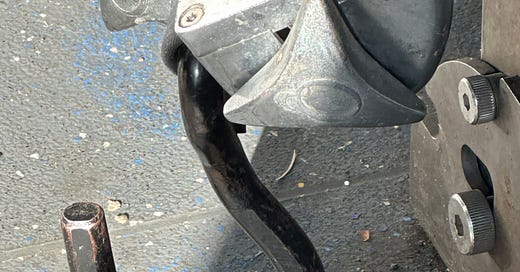



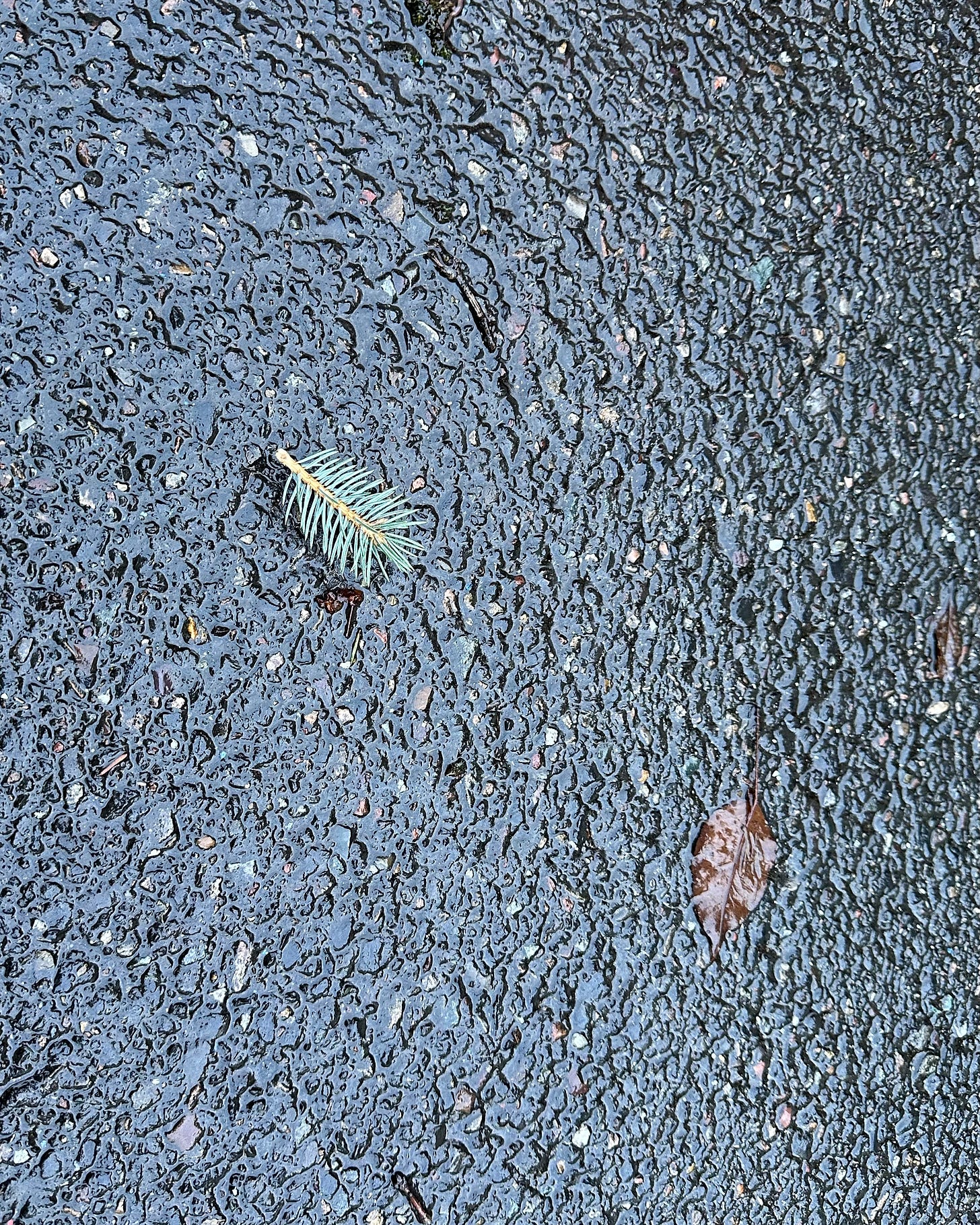
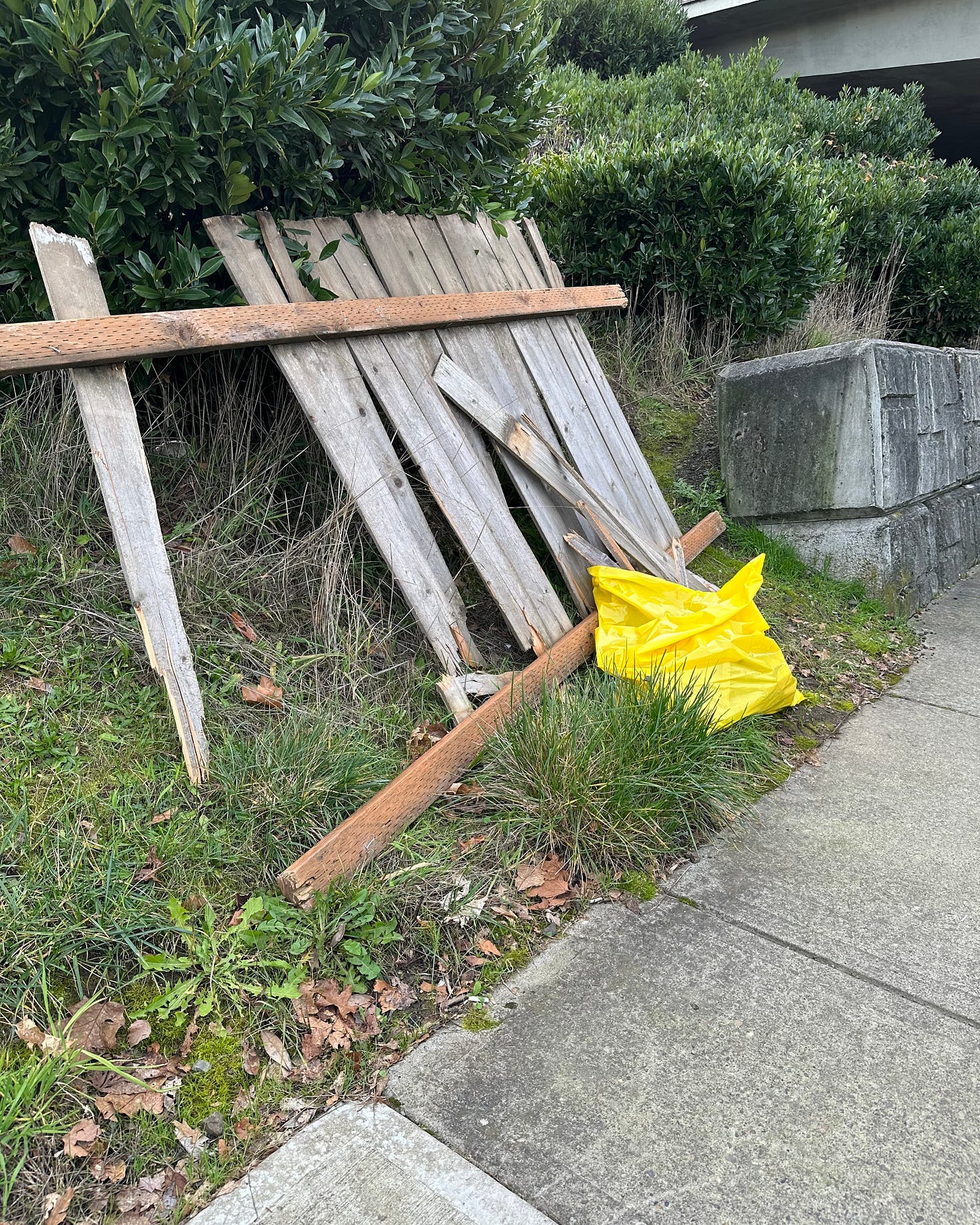
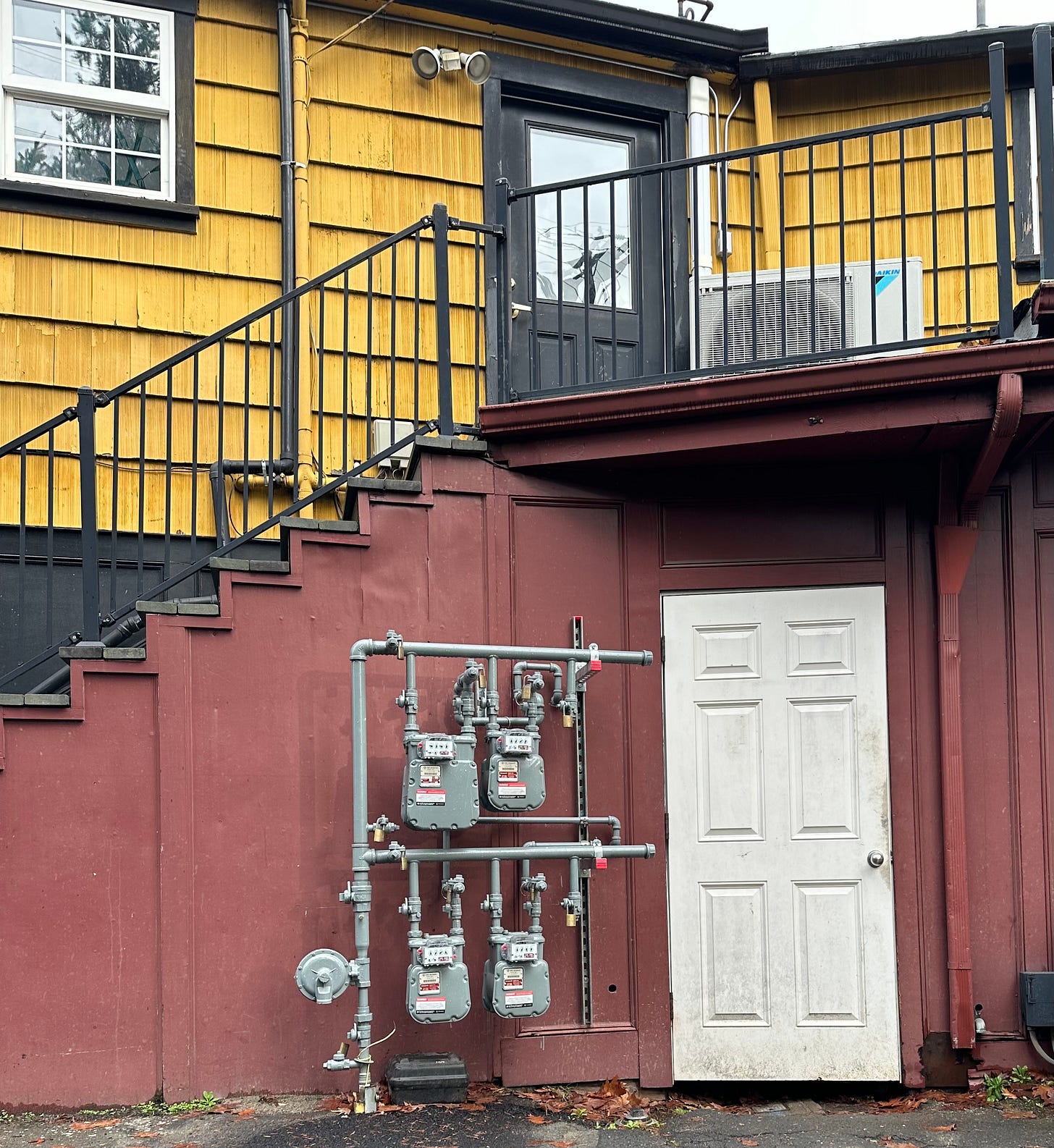


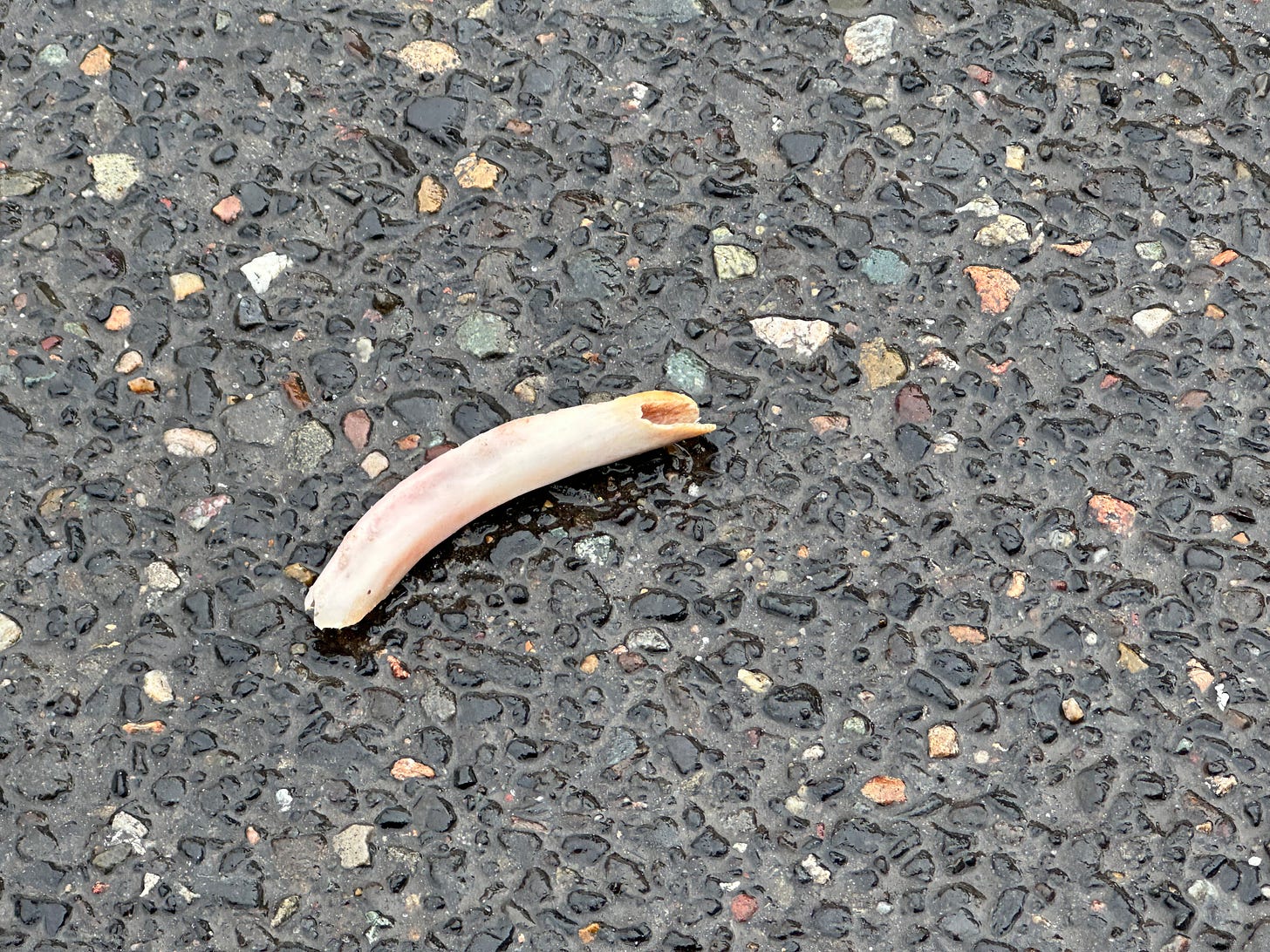

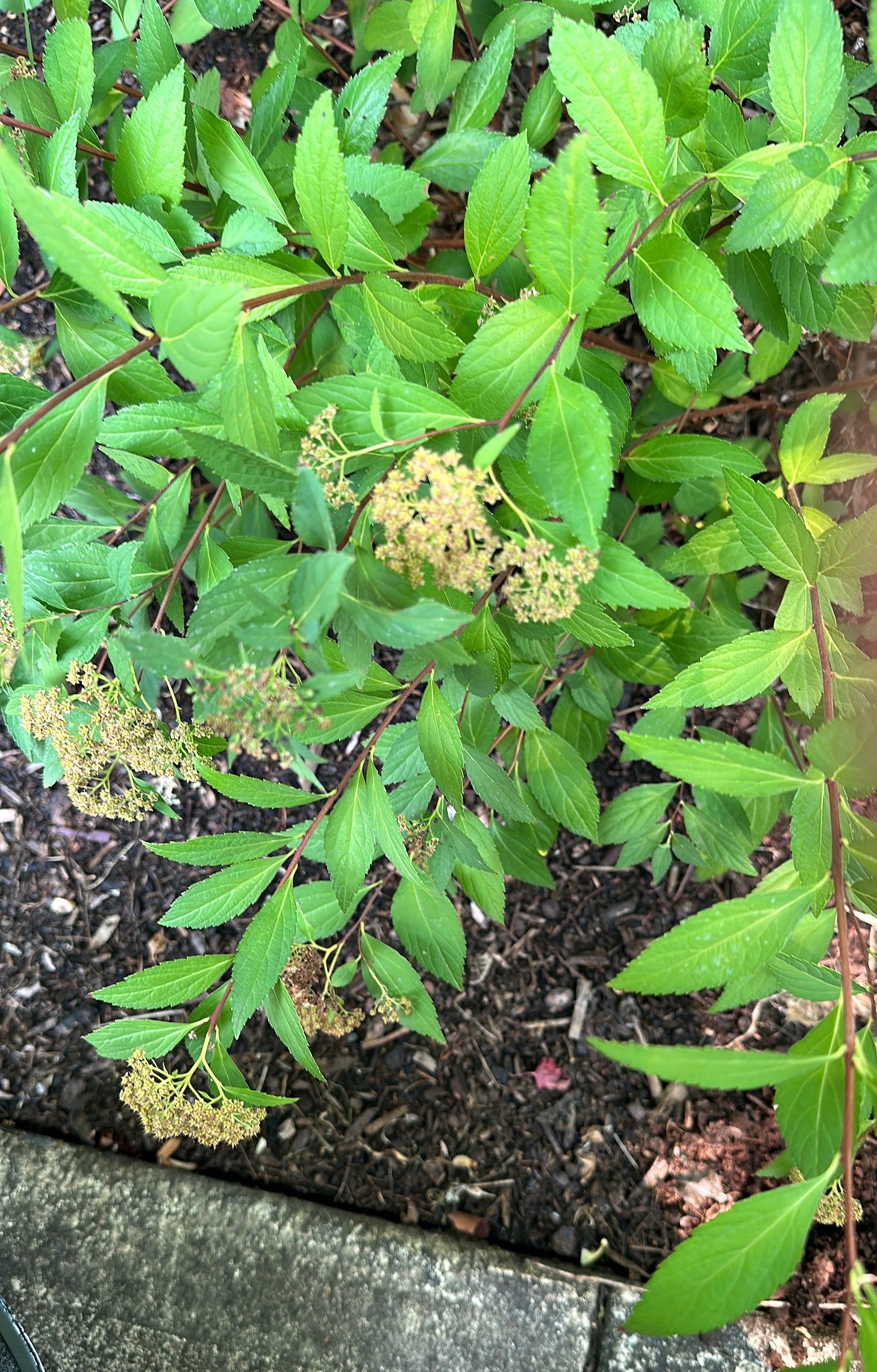
lovely reading; thank you.
Great pics here. Love those splashes of yellow. Happy Leap Day!